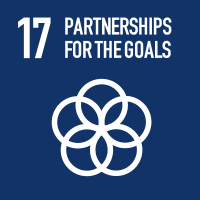Studying at the University of Verona
Here you can find information on the organisational aspects of the Programme, lecture timetables, learning activities and useful contact details for your time at the University, from enrolment to graduation.
Study Plan
The Study Plan includes all modules, teaching and learning activities that each student will need to undertake during their time at the University.
Please select your Study Plan based on your enrollment year.
1° Year
| Modules | Credits | TAF | SSD |
|---|
Professional Laboratories (1st year)
2° Year activated in the A.Y. 2022/2023
| Modules | Credits | TAF | SSD |
|---|
Professional Laboratories (2nd year)
3° Year activated in the A.Y. 2023/2024
| Modules | Credits | TAF | SSD |
|---|
Professional Laboratories (3rd year)
| Modules | Credits | TAF | SSD |
|---|
Professional Laboratories (1st year)
| Modules | Credits | TAF | SSD |
|---|
Professional Laboratories (2nd year)
| Modules | Credits | TAF | SSD |
|---|
Professional Laboratories (3rd year)
Legend | Type of training activity (TTA)
TAF (Type of Educational Activity) All courses and activities are classified into different types of educational activities, indicated by a letter.
Legal, bioethic and deontological principles of professional practice - DEONTOLOGIA E REGOLAMENTAZIONE DELL'ESERCIZIO PROFESSIONALE (2023/2024)
Teaching code
4S000034
Teacher
Credits
1
Language
Italian
Scientific Disciplinary Sector (SSD)
MED/45 - NURSING
Period
2 SEMESTRE PROFESSIONI SANITARIE dal Jan 2, 2024 al Sep 30, 2024.
Courses Single
Not Authorized
Program
Regulatory references for professional practice Deontology and ethics: analysis of concepts and their purposes and integrations within healthcare decisions. The process of building the Code of Ethics and the Professional Order. Meaning and functions. Freelance profession. Themes of the Code of Ethics: Guiding values of nursing care, respect for the patient's will: examples and integrations with the concept of freedom of conscience and conscientious objection, protection of the dignity of the patient: connection with the subjectivity of pain, legislation on the systematic detection of pain, restraint and dignity and will of the patient. Protection of the safety of assisted people with analysis of the positive responsibility of taking charge and maintaining one's own skills and analysis of the concept of supervision as a form of responsibility (differentiating it from the concept of confrontation). the duty to improve the quality of care and professional life, keeping up to date, self-learning. Relationships between professionals and safeguarding the decorum of the profession: working in a team, interprofessional practice. Relationship with institutions and conscious use of social networks. The principle of equity in the allocation choices of available resources. For some issues it may be possible to bring testimonies with a positive constructive value.
Bibliography
Didactic methods
frontal lessons, group work on selected cases with plenary presentation to encourage systematization of data and common reflection
Learning assessment procedures
The exam will be in written form, a closed-ended part, while a part on a case, with open-ended questions.
Evaluation criteria
The exam will be passed with a score equal to or higher than 18/30. The theoretical knowledge learned during the course and individual reflective capacity will be evaluated.
Exam language
italiano


